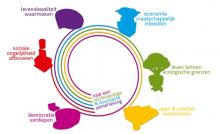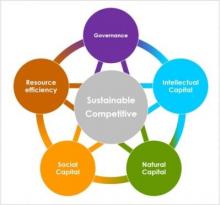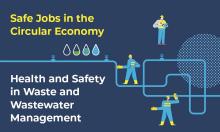One year and a half into the COVID-19 crisis and slowly beginning to see the end of the tunnel, messages are still spread about the necessary changes in ‘the system’ to which this crisis will surely lead.
But what changes? And what ‘system’? And how ‘necessary’ are they?
Many of these messages come from progressive forces that have already been pleading for ‘another world’ for at least twenty years. Many alternatives are being prepared, but there is neither convergence nor strategy.
While it is clear that many governments use this crisis for imposing important changes in rules concerning freedom of expression, freedom of association and other political freedoms, strengthening authoritarian tendencies, one cannot say that this shrinking civic space is an unavoidable consequence of the crisis. At the same time, the apparently counter-cyclical Keynesian turn for corporations and consumption smoothing most probably to be accompanied by a new austerity and anti-inflation policy for people, cannot be attributed to the virus.
Things are different at the level of public health policies, since an awareness has grown of the need for preparedness. We know this will not be the last pandemic and much precious time was lost at the beginning of 2020 when governments appeared not to be equipped for tackling the health crisis.
One real consequence could be the different approach to globalization. Dependence on other producing and exporting countries for basic materials needed to protect the population made several governments decide to re-localize or diversify their sources of supply although the trend to de-globalize was already present with the emergence of shifts in geopolitical relationships.
No doubts can exist on the lessons to be learned from the crisis for social protection in a very broad sense. Too many countries without income or job protection were not able to help those who lost their jobs or who were homeless. Workers in the platform economy, too often without any economic or social rights, were left on their own while lockdowns can have no effect on people who do not even have a roof above their head and who live and work in the streets. While this was clear for all to see, all over the world, no major plans for extending social protection programs and systems have been heard of.
Is there not an argument, then, for saying that the most urgent change the world needs is, indeed, at the level of social policies?
Other changes certainly may be desirable, but can hardly be seen as a direct consequence of the COVID-19 crisis.
In this contribution I want to look at these changes, at how this crisis has revealed and confirmed the direct link between social justice and environmental justice and how a coherent search for social justice can lead to social, economic and political transformation. In other words, how social justice can be a tool for change.
Social justice and environmental justice
The origin of the COVID-19 virus is still unknown. Many speculations are being made and they are not free from geopolitical interests. The U.S. wants to examine the Wuhan Institute of Virology, while China seeks to examine a military laboratory in the U.S. The virus may have come from the wet market in Wuhan and be then transmitted from bats to humans, possibly via some other animal, such as the pangolin or it may be the result of climate change or of environmental damage, such as the destruction of natural barriers between humans and nature.
Nothing can yet be said with any certainty but it is obvious that, theoretically, this last answer might be true. It is very possible that melting of the permafrost or deforestation and the destruction of a natural habitat may have caused, or will cause in the future, the spread of a deadly virus.
This is, then, the most direct link between the natural environment and the health of people. Governments and international organizations that care or claim to care for it should start with protecting the natural environment. It is the first and major element of any social policy.
What was also clear to see when the pandemic struck, was that people not only needed doctors and hospitals, basic elements of any health care system, but also clean water, clean air and decent housing, again, elements of any serious environmental policy. Water has been declared a human right by the U.N., but clean air has not while research revealed that the virus was far more violent in cities with high levels of pollution. Moreover, all over the world, millions of people die prematurely from a lack of clean air.
Pleading for social justice then, is pleading for environmental justice. Both go hand in hand.
There are two ways for achieving this. Green activists have been pleading to take into account vulnerable people when introducing environmental measures. Forbidding polluting cars (e.g.) will be a harsher measure for low-income people driving old cars than for the wealthier groups for whom a new car is not an insurmountable obstacle. Promoting the insulation of houses will most often not be affordable by the poor. So, governments should on each occasion take care not to hurt the poor and vulnerable when imposing new and necessary measures.
But you can also turn this reasoning around. Instead of starting with environmental policies and applying social corrections later, targeting the vulnerable ones that will need help, one can start with social policies and focus on their environmental advantages. Making clean drinking water available for all is a social and at the same time an environmental measure. Making solar energy universally available is a social and at the same time an environmental policy. Building social housing is an extremely important social policy that may help people to live a sustainable life.
This turning around of the priorities is so much more than a symbolic step. In the first place, it does not present environmental policies as a burden for people, on the contrary, it can be welcomed as a positive social proposal difficult to reject.
Secondly, it makes clear that social policy can be in itself a tool for change in different sectors because it is not only environmental policies that should be enhanced, social policies, so urgently needed for the majority of the world population, can become an exceptional constructive vantage point for building ‘another world’.
Obstinate coherence
‘Obstinate coherence’ is what I call our needed efforts for achieving real change and for making, consequently, social protection transformative. It does not only concern the obvious and direct freedom from want or freedom from fear, it goes much further, at least, if we want it.
Again, think of the COVID-19 crisis. Different campaigns are currently going on to obtain a WTO waiver, that is to open the possibility for pharmaceutical companies to give up their patents on the vaccines in favor of countries in the South. Now these vaccines are clearly a matter of life and death for people, especially in poorer countries that have, till now and contrary to countries in the North, received almost no vaccines. This means that for obtaining this major health achievement, one has to tackle the WTO and ‘big pharma’ and, consequently, the economic system of private property and patents.
The same goes for some pesticides, proven or suspected to be carcinogenic for the farmers who use it or for consumers who eat vegetables or fruits with residues of toxic products. In order to protect the health of all, farmers and consumers, one has to tackle the big corporations producing and promoting them. Or take the producers of sweets and soft drinks with high levels of sugar, causing obesity and diabetes, which were, by the way, also factors aggravating the risk of catching COVID 19. Fighting the viral disease, then, and organizing preventive health care, includes the fight against these economic giants.
This is why some people now speak of ‘one health’, combining human, animal and environmental health. This will indeed be necessary if we want to avoid similar pandemics in the future. It implies a multidisciplinary approach not only to protect people’s health but also to promote the changes we want.
It is easy to see then how pursuing social justice can lead us directly to the big corporations. If we want a healthy environment, in order to protect our health, we cannot allow them to destroy nature and poison the earth with extractive industries, be they oil exploration, gold mining or monocultures using dangerous fertilizers. If we want healthy food, we cannot accept that toxic pesticides or highly sugared drinks are brought on the market.
In this way, we also link up with the ‘care’ that is central to feminist economics. Caring for the health of people means caring for their jobs, their incomes, their pensions, their education, their housing … their social protection. And if we take this reasoning one step further, we can see that the economy itself will have to ‘care’ for nature and for people. As ‘ecology’ is the science of the household of nature, ‘economy’ is about life and the preservation of life. It should only produce the products that we really need and that do not harm nature or people.
In other words, caring for people and their health, means caring for the environment and making the economy care for people and nature. It also means caring for democracy, because no justice can be achieved if people are not directly involved in conceptualizing, implementing and monitoring their economic and social systems.
Social justice for sustainability
Taking social justice as a starting point leads directly and inevitably to the environment, the economy and politics. With a transversal and multidisciplinary approach, a whole range of problems can be tackled with perfectly rational and non-ideological arguments. This contribution only gives a very superficial overview of numerous inter-linkages that show how social justice can become a tool for change.
This is not to say that social justice is the only means to build another world. The same reasoning can probably be used for economic policy or democracy itself. The major point is that social rights are potentially welcomed by all and that it therefore should be easy to mobilize movements around them. There is no need for behavioral policies or nudging, there is no need for convincing people of policies they see as a burden and there is no need for theoretical explanations that they may not understand. Social justice benefits all.
Social justice is a very broad concept with many different policies, from social protection with health care, income security, labor law and public services, to policies of gender equality, anti-racism and migration. It is a matter of social development and universal human rights. Most of these elements today are very problematic, because of biased priorities of governments and lack of coherence within progressive political forces. Social justice might —and I think should— become the glue for articulating different and divergent concerns that in the end, might converge and contribute to the needed transformative policies.
Social justice then, with a broad and democratic system of social protection at its core, can be the bearer of sustainability, for people, for societies and for nature. Why not try it?
Francine Mestrum
Francine Mestrum has a PhD in Social Sciences from the Université Libre de Bruxelles, Belgium. She worked at the European institutions and several Belgian universities.
This article was first published on Wall Street International
You’re invited to send your thougt-out comments to infoATpala.be
Reproduction of this article is permitted for non-commercial and non-subsidized organizations with citation of author and source, with web link. We would like to hear from you | Commercial and/or subsidized organizations contact info@pala.be prior to publication.




